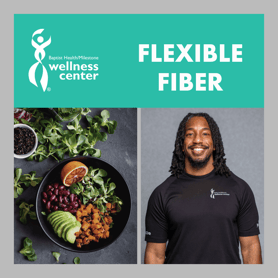 Fiber is one of the least eaten and understood nutrients. Most people know about how fiber helps the digestive system but few know about how it helps with heart disease, cholesterol, and weight loss. It is estimated that Americans only get about 15 grams of fiber per day even though the recommendations for women are 21-25 grams and men 30-38 grams. There are two types of fiber, soluble and insoluble. Each one has its own share of benefits.
Fiber is one of the least eaten and understood nutrients. Most people know about how fiber helps the digestive system but few know about how it helps with heart disease, cholesterol, and weight loss. It is estimated that Americans only get about 15 grams of fiber per day even though the recommendations for women are 21-25 grams and men 30-38 grams. There are two types of fiber, soluble and insoluble. Each one has its own share of benefits.
Soluble fiber delays the emptying of your stomach and makes you feel full by attracting water and forming a gel. This process slows down digestion keeping you fuller longer which in turn can help maintain or lose weight. Slower stomach emptying may also affect blood sugar levels and have a beneficial effect on insulin sensitivity, which may help control diabetes. Good sources of soluble fiber are: oatmeal, oat cereal, lentils, apples, oranges, pears, oat bran, strawberries, nuts, flaxseeds, beans, dried peas, blueberries, cucumbers, celery, and carrots.
Insoluble fiber is often called the gut-healthy fiber because it has a laxative effect and adds bulk to the diet, helping prevent constipation. These fibers do not dissolve in water (hence the name), so they pass through the gastrointestinal tract relatively intact, and speed up the passage of food and waste through your gut. Good sources of insoluble fiber are: whole wheat, whole grains, wheat bran, corn bran, seeds, nuts, barley, brown rice, zucchini, celery, broccoli, cabbage, onions, tomatoes, carrots, cucumbers, green beans, dark leafy vegetables, raisins, grapes, fruit, and root vegetable skins.
To get the benefit of both types of fiber you need to have a very diverse diet. The main complaint that I hear when it comes to increasing fiber intake is feeling bloated or gassy. This is usually caused by eating too much fiber in one sitting. Spread out the amount of fiber you eat over the course of the day and drink plenty of water. While the best way to get the recommended amount of fiber is through food, taking a fiber supplement like Benefiber or Metamucil wont hurt you (unless you take too much). Beyond its digestive system benefits, fiber is a very versatile nutrient.


